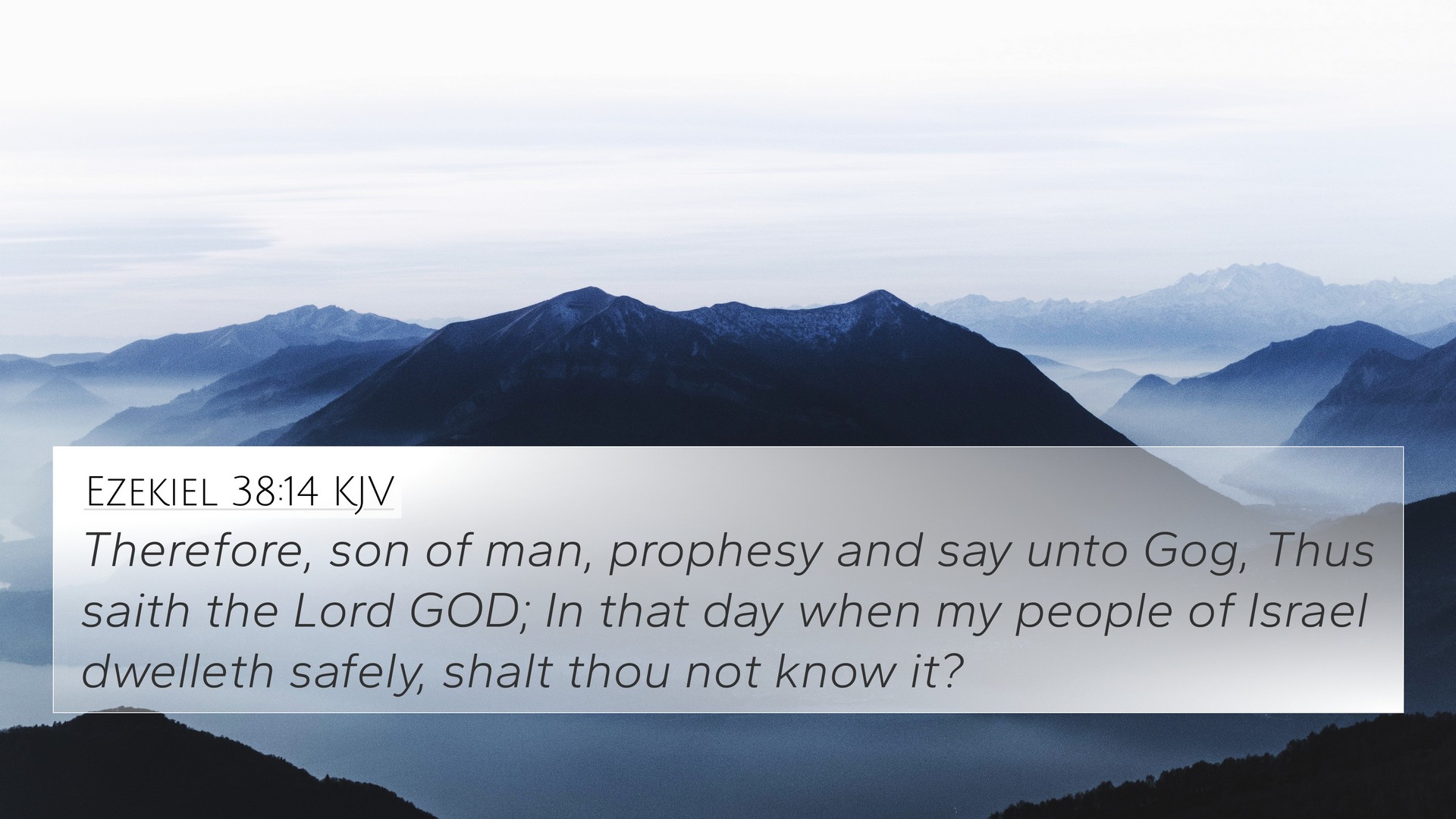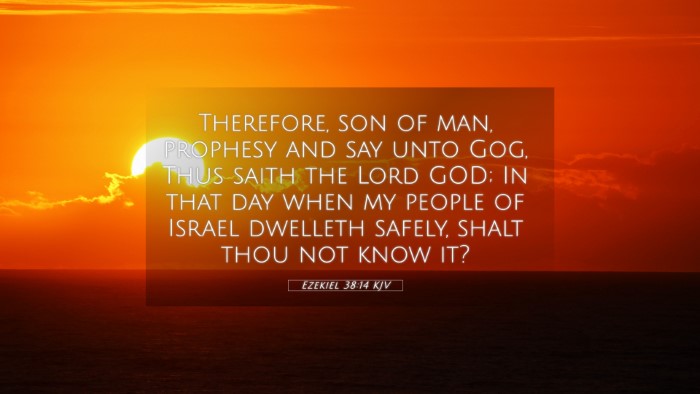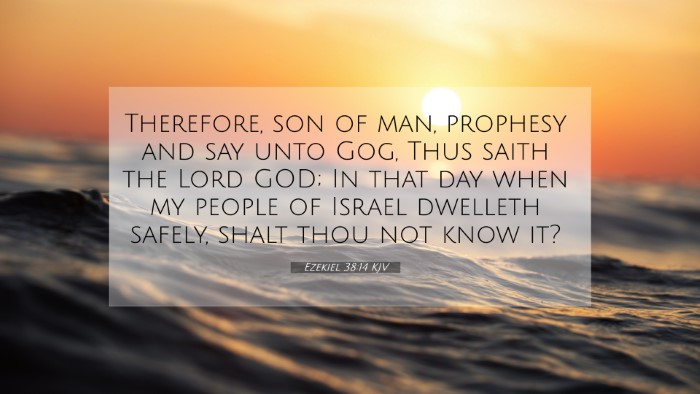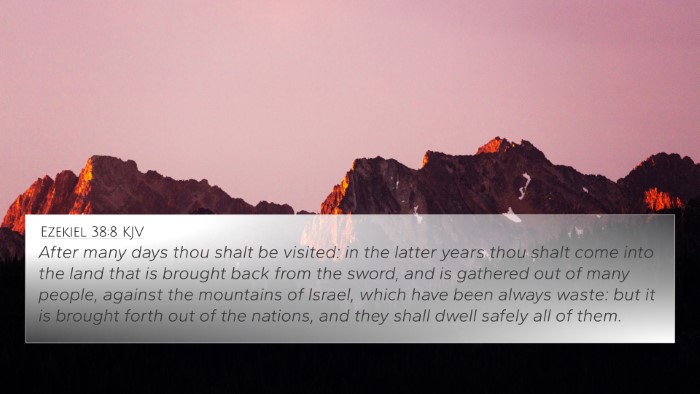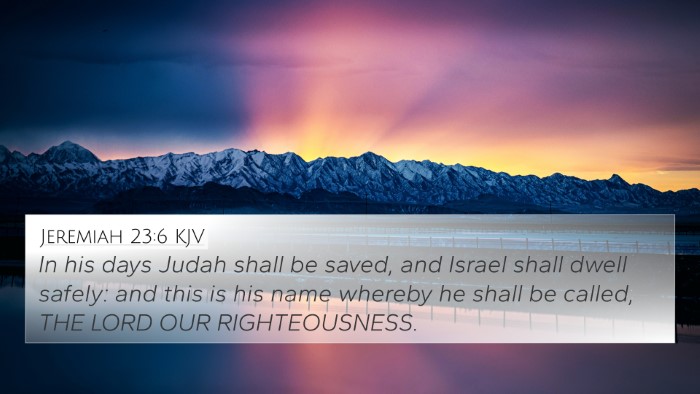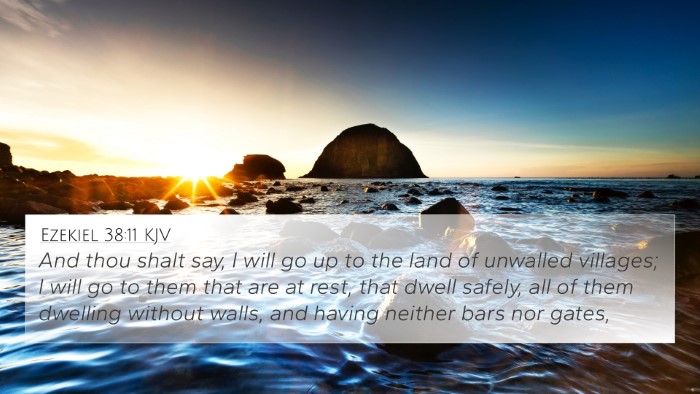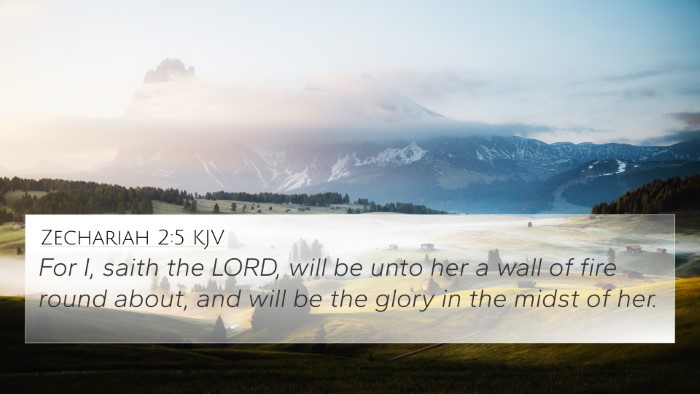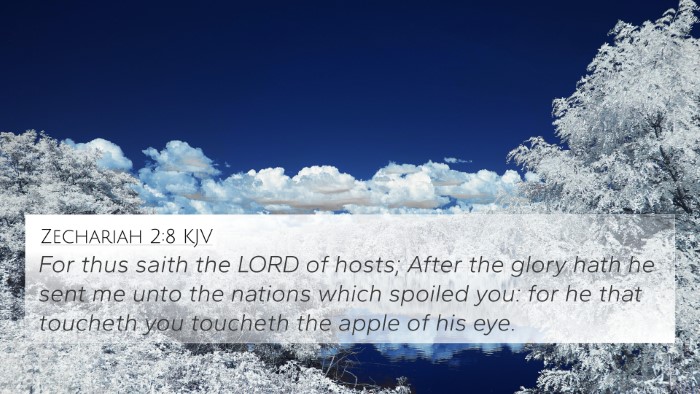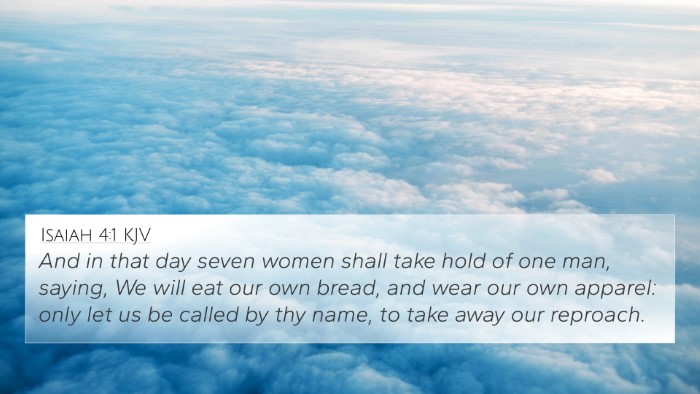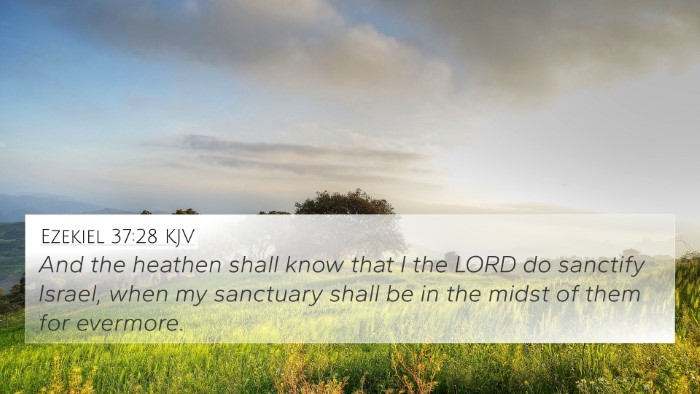Ezekiel 38:14 - Understanding its Meaning
Ezekiel 38:14 states: "Therefore, son of man, prophesy and say to Gog, 'Thus says the Lord God: On that day when my people Israel dwell safely, will you not know it?'" This verse is pivotal in understanding the prophetic context of Ezekiel's message regarding God’s people and the impending threats they face from nations, particularly represented by Gog.
Summary of the Verse Meaning
This verse, taken from the prophetic writings of Ezekiel, addresses Gog, the leader of a coalition of nations that threatens Israel. This text, in accordance with insights from various public domain commentaries, signifies God's omniscience and His protective approach towards His people. Here are combined insights from Matthew Henry, Albert Barnes, and Adam Clarke:
- Matthew Henry: He emphasizes the assurance of God’s presence among His people. Henry notes that even in times of potential conflict, God is aware of their situation, and He is actively involved in safeguarding them.
- Albert Barnes: Barnes views this verse as a call to recognize God's vigilance. He interprets it as a prophetic warning to nations like Gog, suggesting that their plans against Israel will not go unnoticed by God nor succeed.
- Adam Clarke: Clarke elaborates on the implications of Israel's safety. His analysis indicates that the verse portrays a divine acknowledgment of the spiritual conditions of Israel and highlights God’s sovereign role in their protection against adversaries.
Contextual Significance
The context surrounding Ezekiel 38 involves prophecies concerning future conflicts, the role of Gog, and the anticipated restoration of Israel. This prophecy emerges as a pivotal moment in the eschatological landscape of Scripture.
Related Bible Cross References
This verse has several connections to other Scriptures, serving as a bridge between various Biblical themes and narratives. Below are key cross-references:
- Jeremiah 30:10-11: Highlights God's promise to protect Israel during times of trouble.
- Isaiah 37:6-7: Reassures Israel of God’s deliverance from the threats posed by other nations.
- Joel 3:2: Discusses the gathering of nations against Israel, similar to the message of Ezekiel.
- Revelation 20:8: Relates to Gog and Magog in an eschatological context, offering parallels in prophecy.
- Zechariah 12:2-3: Portrays Jerusalem as a burdensome stone, indicating the challenges faced by Israel.
- Psalm 83:1-5: A lament over the plots of nations against Israel.
- Ezekiel 39:1-3: Continues the narrative of Gog’s defeat and God's ultimate victory for Israel.
Thematic Connections
This verse resonates with several theological themes, including:
- Divine Sovereignty: Emphasizes that God is in control even when external threats loom large.
- God's Covenant with Israel: Reflects the ongoing relationship and promises that God has towards His people.
- Protection and Security: Highlights God's commitment to safeguarding His people amidst adversities.
- Prophetic Fulfillment: This verse exemplifies Old Testament prophecy, paving the way for New Testament understandings of God's redemptive plan.
How to Use Bible Cross-References
Utilizing the methods of cross-referencing can enrich one’s study of the Scripture. Here are effective strategies:
- Bible Concordance: Utilize a biblical concordance to find synonymous themes and verses related to Ezekiel 38:14.
- Cross-Reference Guide: Refer to cross-reference guides that map connections between Old and New Testament verses.
- Comparative Studies: Engage in comparative studies of Biblical texts to see how different passages address similar themes.
Conclusion
Ultimately, Ezekiel 38:14 serves not only as a prophetic proclamation but also as an assurance of God's ever-watchful presence over His chosen people, Israel. Understanding this verse through the lens of cross-referencing other Scriptures enhances our grasp of God's comprehensive plan and affirmations throughout the Bible.
